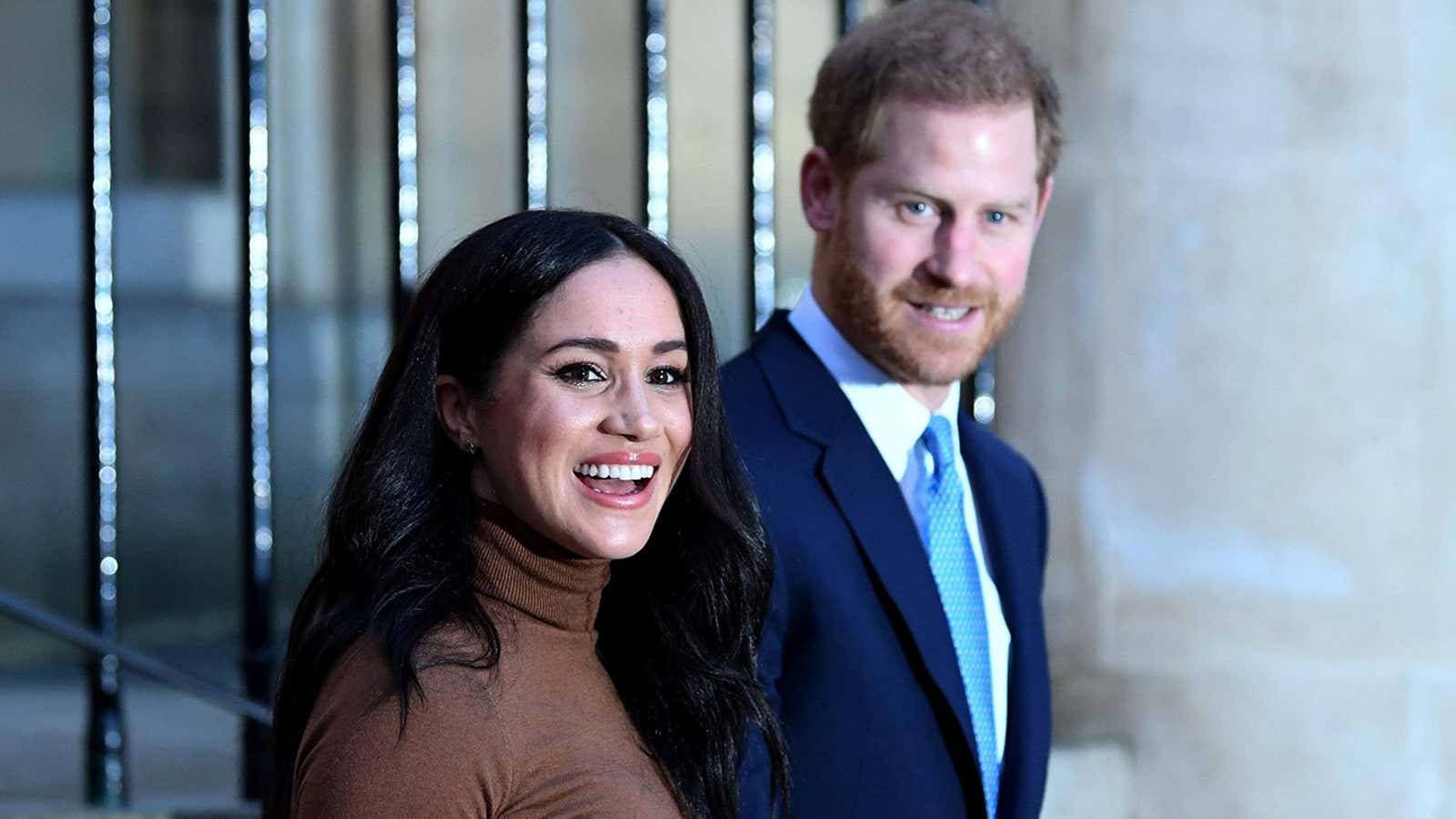Prince Harry was 12 years old when his mother, Princess Diana, died in a car crash in Paris. At the funeral, he and his older brother William were made to walk behind the coffin, in front of hysterical crowds and the entire world on TV. “I don’t think any child should be asked to do that,” he told Newsweek in 2017.
Aside from a few youthful indiscretions, Harry grew up to be a popular, charming young man. He has his mother’s charisma. He married Meghan Markle, a successful actress in a major TV show, in 2018. She is also a foreign black woman, and they have a black child together. A modern royal family.
Now, less than two years after their marriage, Harry and Meghan, the Duke and Duchess of Sussex, have announced that they’re stepping down as senior royals. They plan to divide their time between the UK and North America, and will “work to become financially independent.” They reportedly didn’t consult Harry’s grandmother, the Queen.
In 1936, Edward VIII abdicated so he could marry a divorcee whose exes were still alive, a big problem back then. More recently, Prince Andrew was pushed into the palace shadows because of his startling connections to convicted sex offender Jeffrey Epstein. In general, however, royals either get on with it or quietly slip away.
For Harry and Meghan to have made this decision, and announced it in such a public way, something has gone badly wrong. In their Instagram post, they don’t explain what it is, but there are clear signs elsewhere.
In a TV documentary last year, Meghan recalled a warning from a British friend—“the British tabloids will destroy your life”—before admitting she was struggling with the pressure.
It began early. On Nov. 8, 2016, the day the US elected Donald Trump as president, the palace issued a strongly worded statement about the “wave of abuse and harassment” towards Meghan, and “the racial undertones of comment pieces” about Harry’s then-girlfriend. “Prince Harry is worried about Ms. Markle’s safety,” it continued, starkly.
Harry’s mother was killed while paparazzi chased her across town. With his wife, there is an extra dimension to the harassment. Newspaper columnists and TV pundits obsess about her “conduct” and “character.” The code isn’t difficult to decipher.
Meghan is not alone in receiving this treatment. Raheem Sterling is Britain’s best soccer player, Stormzy one of its biggest music stars. Both have recently used their huge personal platforms to rebuke sections of the British press for racism. But the pushback can be debilitating, even for such prominent, popular figures.
Social media is even worse than the tabloid press, but headlines in established outlets can legitimize and encourage the internet extremists, according to Harvard legal scholar Yochai Benkler, who studied coverage of the 2016 US election campaign. He found that Fox News is central to the extreme-right media ecosystem in the US. The Daily Mail, the most widely circulated paper and biggest news website in the UK, may play a similar role in Britain.
Diana was just 36 when she died. Meghan is now 38. On a talk radio show this morning, an unsympathetic caller said that “she’s asked for it.” Another said she should “shut up.” It’s perhaps not hard to understand why she walked away.
